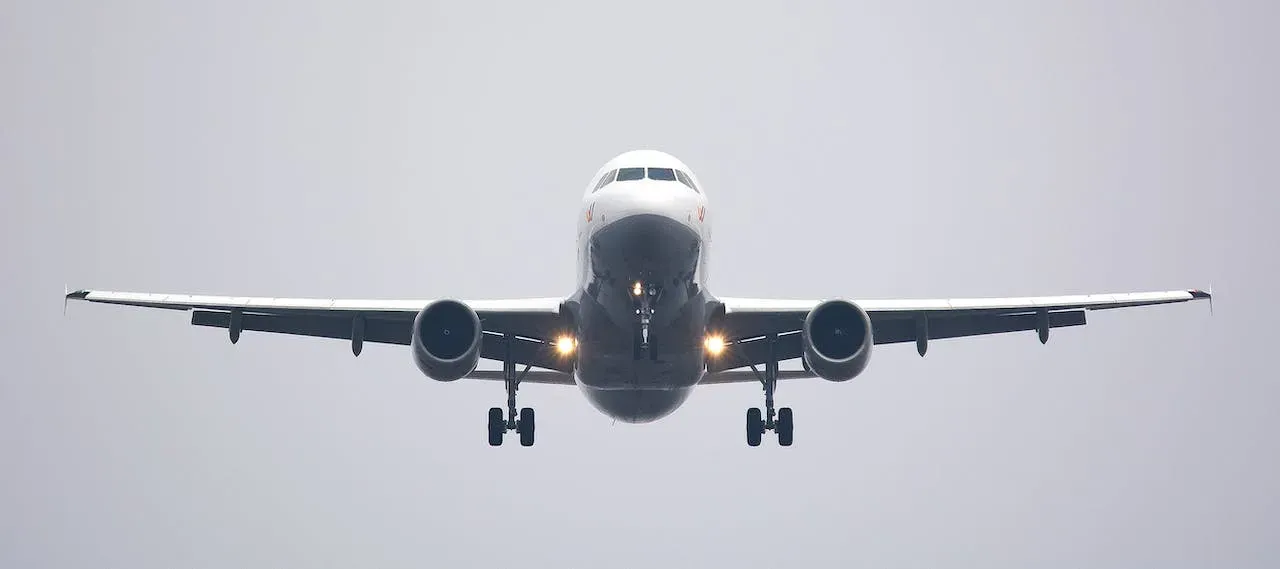The opinions expressed in this article are the author's own and do not reflect the view of Pathward®.
Looking to pursue your dream of becoming a pilot but wondering how to pay for flight school? Flight training can come with a hefty price tag, but with proper planning and understanding of your financial options, you can turn your dreams into reality.
In this article, we'll break down the costs of flight school, explore different ways to finance your flight training costs, and help you make the right financial decision. So fasten your seatbelts and get ready to take off on your journey to becoming a pilot!
Discover the various options, grants, scholarships, and strategies for financing your flight school education in this comprehensive guide.
Evaluating Your Financial Options
Personal Savings and Family Contributions
If you have been saving up for flight school, congratulations! Personal savings can be a great way to fund your pilot training. It shows dedication and a strong commitment to your goals. However, it's essential to evaluate how much you've saved and whether it's sufficient to cover the entire flight school cost.
Flight school expenses can include tuition fees, flight hours, textbooks, and equipment. Take the time to calculate these costs accurately to determine if your savings will be enough.
Consider reaching out to your family for financial support. Many pilot students receive assistance from their loved ones, whether it's a one-time contribution or an agreement to cover a portion of the costs. Family support not only eases the financial burden but also strengthens the bond between you and your loved ones.
Bank Loans and Credit Cards
If personal savings and family contributions aren't enough, borrowing money through a loan or using a credit card can be viable financing options. Many banks offer specialized loans for flight school students, with competitive interest payments and flexible plans.
Before committing to a flight school loan, it's crucial to carefully research different options available to you. Compare borrowing rates, loan terms, and repayment options to ensure you're getting the best deal possible. Look for loans specifically tailored for flight school students, as they may offer more favorable terms and conditions.
Another option is to use a credit card. However, be cautious when using this method, as credit card interest can be significantly higher than that of a bank loan. If you do choose this route, make sure you have a solid plan in place to pay off the balance as quickly as possible to avoid accruing excessive interest charges. You can also consider debit cards for students as an additional step to pay for flight school.

The Bold Visa® Debit Card
If you’ve accumulated student loan debt or you’re looking for other ways to pay for school, you may be interested in the Bold Debit Card. It is a great resource to help you prepare for your financial future and elevate your flight school dreams. In essence, the Bold Debit Card is like your boarding pass to thrilling rewards.
You can soar through your expenses, earning Bold Points* at a rate of 1 point for every $1 spent in various categories. Let’s say you earn 1,000 Bold Points. You can redeem them for $5 cashback or $7.50 in student loan payments. As a debit card, you don’t have to worry about accumulating debt or interest like a credit card or loan.
Our debit card has no hidden fees or foreign transaction fees,† and the best part is it helps you pay for school faster by either redeeming Bold Points earned for student loan payments or opting for cashback to help you pay for a college book or a study session at a cafe.
Cut down on your student debt! Register at Bold.org, apply for scholarships in a snap, and earn rewards from your spending with a Bold Debit Card.
Apply for the Bold Debit Card today!The Costs of Flight School
Tuition Fees and Additional Costs
Tuition fees vary depending on the type of aviation training program you choose, whether it's a private pilot license or advanced certification. On average, flight school can cost anywhere from $8,000 to $150,000, so it's crucial to research and compare different schools to find the best fit for your budget.
In addition to tuition fees, textbooks, flight manuals, medical certificates, written exams, aircraft rental fees, fuel costs, and even accommodation are expenses to consider.
Hidden Expenses to Consider
While it's easy to focus on the obvious costs, there are hidden expenses that can catch aspiring student pilots off guard. One such expense is the need for additional flight time beyond the minimum requirement set by the Federal Aviation Administration (FAA).
According to the Experimental Aircraft Association, on average, student pilots need around 60-80 hours of pilot training to obtain their private pilot license, which can add up quickly and increase the overall cost.

Each hour of flight time includes the cost of fuel, maintenance, and wear and tear on the aircraft. It's important to factor in these additional flight pilot training hours when preparing your budget, as they can significantly impact the total cost of your flight school experience.
Another hidden cost is the possibility of flight delays due to weather conditions or mechanical issues.
Weather conditions such as fog, thunderstorms, or high winds can make it impossible for ground flights to complete your training as scheduled. Mechanical issues with the aircraft can also cause delays, as maintenance and repairs may be necessary before the aircraft can safely take to the skies.
Additionally, it's important to consider the cost of living expenses if you're attending flight school away from home. Rent, utilities, groceries, and transportation costs are all factors to consider when calculating the total cost of your flight training.
Flight school is also a time commitment. Depending on the intensity of your pilot training program, you may need to dedicate several months or years to complete your flight training. This means you may need to factor in the cost of living, including food, transportation, and personal expenses, in order to save money.
By researching and comparing different flight schools, considering hidden expenses, and factoring in the cost of living, you can make an informed decision and plan your flight training journey accordingly.
Exploring Scholarships and Grants
Aviation-Specific Scholarships
- The Aircraft Owners and Pilots Association (AOPA) Flight Training Scholarships. AOPA, a leading organization in the aviation industry, offers scholarships to support individuals pursuing flight training.
- The Experimental Aircraft Association (EAA) is available to individuals of all ages and backgrounds, and they cover a wide range of aviation-related expenses, including flight training, aircraft maintenance, and even attending aviation events and workshops.
- Another notable scholarship program is offered by Women in Aviation International (WAI). WAI is dedicated to promoting gender diversity in the aviation industry and offers scholarships specifically for women pursuing careers in aviation.
Get Started with the Bold Debit Card
Earn rewards that help pay for school.* Apply for the Bold Debit Card today!
Join Bold.orgGeneral Education Grants
In addition to aviation-specific scholarships, there are education grants available that can be used to fund flight school. The Pell Grant is a need-based grant that provides financial assistance to undergraduate students. Eligibility for the Pell Grant is determined by completing the Free Application for Federal Student Aid (FAFSA), which takes into account factors such as your family's income, assets, and other financial resources.
By completing the FAFSA, you can determine your eligibility for not only the Pell Grant but also other federal grants and loans.
State grants are another option to consider when seeking financial aid for flight school. Many states offer grants specifically for residents pursuing higher education, including aviation programs. It's important to research the options available in your state and submit your applications accordingly.
When applying for grants, keep track of the required documents, such as tax returns and financial statements, and submit them in a timely manner. Make sure to thoroughly review the eligibility requirements and any additional application materials that may be required.
Considering Student Loans for Flight School
Federal Student Loans
If you're unable to secure scholarships or grants, federal loans can be a viable option. The U.S. Department of Education offers loans specifically for flight school students, such as the William D. Ford Federal Direct Loan Program.
When considering federal student loans, it's essential to be aware of the terms and conditions. You'll be required to complete entrance counseling and sign a Master Promissory Note, which outlines your responsibilities as a borrower.
One advantage of federal student loans is the availability of income-driven repayment plans. These plans allow borrowers to make monthly payments based on their income and family size, ensuring that the loan repayment is manageable even during periods of lower income.
This flexibility can be particularly beneficial for flight school graduates who may start their careers with lower salaries but have the potential for significant income growth over time. Additionally, federal student loans offer certain borrower protections that private loans may not provide.
For example, if you experience financial hardship, you may be eligible for loan deferment or forbearance, which temporarily suspends or reduces your loan payments.
Private Student Loans
If federal student loans aren't sufficient, private student loans can bridge the gap. Offered by banks, credit unions, and other lending institutions, private lenders usually have higher interest rates and stricter repayment terms compared to federal loans.
Be sure to compare interest rates, loan terms, and fees to find the best possible deal. It's also advisable to reach out to flight school alumni or industry professionals for recommendations and insights into reputable lenders.
Private student loans may require a cosigner, especially if you have limited credit history or income. A cosigner for a private loan is someone who has a strong credit history and is willing to take on this financial obligation if you're unable to make payments.
Be sure to research student loan options to determine if a student loan is right for you. It’s essential to understand loan term agreements and repayment plans.

Employer Sponsorship and Reimbursement Programs
Airline Sponsored Flight Training
If you're considering a career as a commercial pilot, some airlines offer sponsored flight training programs. These programs provide aspiring pilots with an opportunity to receive training at little or no cost in exchange for a commitment to work for the same airline-sponsored pilot training for a specified period.
Examples of airlines that have sponsored flight training programs include Delta Air Lines' Propel Pilot Career Path Program and American Airlines' Cadet Academy. Be sure to research the requirements and application process for each airline pilot and program you're interested in.
Employer Reimbursement Programs
Even if you're not pursuing a career with a specific airline, some employers offer tuition reimbursement and programs for flight training. These programs typically require you to work for the company for a specified period after completing your flight training.
Making the Right Financial Decision
Long-Term Financial Planning for Flight School
While flight school financing is undoubtedly a significant financial investment, it's crucial to think beyond the immediate costs and consider the long-term financial impact.
Understanding the earning potential can help you determine how much you can comfortably afford to borrow or invest in your flight training. Whether it's through personal savings, family contributions, scholarships, grants, student loans, or employer programs, you will have multiple avenues to explore.

Frequently Asked Questions About How to Pay for Flight School
How much does flight school typically cost?
Flight school costs can range from $8,000 to $150,000.
Are there scholarships available for aspiring pilots?
Yes, many aviation organizations offer scholarships for flight training.
Can I use federal student loans to pay for flight school?
Yes, federal student loans are available for flight school students. They often offer favorable interest rates and flexible repayment options.
Do airlines offer sponsored flight training programs?
Some airlines offer sponsored training programs where they cover your training costs in exchange for a commitment to work for them after completion.
Can I get financial aid for flight school?
Along with scholarships and loans, many flight schools offer their own financial aid packages. Check with the school’s financial aid office for options.
Join Bold.org now! Find no-essay scholarships easily and manage your funds with the Bold Debit Card. Don’t forget to explore our Scholarship Blog for more tips and strategies for reducing college debt!
Bold.org Visa® Debit Card is a demand deposit account provided by Pathward®, N.A., Member FDIC. Bold.org Visa Debit Card is issued by Pathward, N.A., Member FDIC, pursuant to a license from Visa U.S.A. Inc. Card can be used everywhere Visa debit cards are accepted. Visa is a registered trademark of Visa U.S.A. Inc. All other trademarks and service marks belong to their respective owners. Register your Card for FDIC insurance eligibility and other protections.
*This product or service is independent of Pathward® and Visa and is neither endorsed nor sponsored by Pathward® or Visa.
†The features associated with the Bold Debit Card discussed in this blog post are provided by Bold.org and are not affiliated with our Bank partners, Pathward®, or Visa.

About Jaeme
Jaeme Velez is an exceptionally dynamic writer, researcher, and avid enthusiast for science and technology. He brings a deep understanding of securing scholarships, obtaining student loans, and navigating the transition from community college to university.
As a first-generation college student, Jaeme began pursuing the dramatic arts and made a significant transition to pursuing academic studies at L.A. Valley College, focusing on Communication and English. He graduated cum laude with a B.A. in Creative Writing at Columbia University in the city of New York. His academic excellence has been recognized through the Casdin Family Scholarship Award and his membership in the Columbia University Honor Society.
Jaeme's academic path is marked by a profound passion for literature and storytelling, particularly in exploring the confluence of diverse cultures and languages while addressing social disparities. Alongside his literary interests, Jaeme maintains a keen curiosity for science and technology, actively engaging in research and projects related to Artificial Intelligence, Design, and human-computer interaction.
Experience
Balancing work and full-time studies as a first-generation college student has endowed Jaeme with a wealth of experience and insights. In his role as a Content Writer at Bold.org, Jaeme shares invaluable wisdom and advice, drawing from his personal journey to provide the guidance he wishes he had received at the start of his academic journey.
His work is fueled by the desire to equip the next generations of students with the knowledge and tools necessary to navigate their unique academic paths. From financial literacy to maintaining a healthy lifestyle, Jaeme strives to contribute to the ongoing discourse on education and support the next generations of scholars, regardless of their age, background, or current stage in life, as they traverse the complexities of higher learning.
Since joining the Bold.org team in 2023, Jaeme has employed his distinctive background as a first-generation student alongside his familiarity with scholarships and student loans to guide students through the intricacies of academic life, emphasizing that every student's journey is distinct and worthy of recognition.
Through his writing and advocacy, Jaeme leverages his personal and professional experiences to provide comprehensive support to students. He is dedicated to empowering students and addressing the challenges they encounter in their pursuit of higher education.
Quote from Jaeme
“Who is the person? What's their problem? Do your research. Offer solutions.”